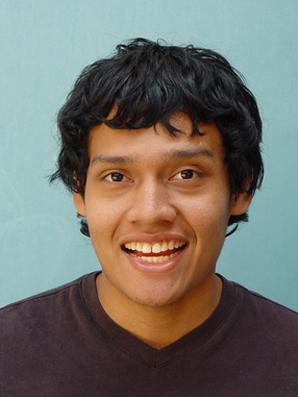Arguments rose, points were made and some emotional moments were shared Thursday afternoon, during the presentation “What’s in a name? HeLa/Henrietta Lacks: Two Sides of Same Coin.” Discussion was led by Reina Prado and J.C. Moore.
A crowd of about 25 people came to LB205 to discuss the life of Henrietta Lacks, and immortality of her cells which were the first to survive outside the human body.
The discovery of the HeLa cells in 1951 have led to the cures of many diseases, including polio, discovered by Jonas Salk in 1954.
The down side is that Lacks’ family never knew she was being experimented on.
Neither family, or the public, knew of the torturous treatment Lacks would also receive from the doctors at Johns Hopkins hospital in Baltimore, Md.
The type of treatment and the face Lacks’ family didn’t know about how her cells were used, served as a starting point for Moore’s presentation.
“If Henrietta Lacks were a white female, would the treatment be different?” said Moore, a professor of sociology in GCC “Would the treatment or the discovery have been different?”
“With such good intentions, we tend to sometimes forget that people are involved in all this,” said Reina Prado, an ethnic studies professor at the college.
The HeLa cells were thought to have come from Helen Lane, a fabricated name, as a way to “protect [Lacks’] family,” said Prado, “If it were known that
the HeLa cells came from an African-American woman, the knowledge would have made the scientists nervous.”
An audience member then said that HeLa cells researcher, George Gey could have been deterring other scientists on the discovery of the cells or just protecting his own name to the discovery.
Shortly after the discovery of HeLa, the cells were mass produced without the permission of the family. This mass production became a controversy in the discussion.
“When does ‘self’ stop?” asked Prado.
Points of interest were also made not just on Lacks’ “human testing,” as said by Prado, but also about other types of human testing done before Lacks, such as prisoners being tested upon voluntarily, for the incentive of a bit more rations, according to Peggy Renner, a history professor.
“Scientists that get the cells should ask people for permission,” said Rosemarie Shamieh, a business professor from the Garfield Campus.
The discussion also covered the racist media during Lacks’ time. Several people spoke about African-American artists who were unable to show their faces on their own music album covers.
The presentation ended on a note of a question to keep the audience thinking.
“When does it become necessary for a person to have a patent for their own selves,” asked Prado as she thanked everyone for arriving and discussing in the event.
There will be a month long recognition to the book “The Immortal Life of Henrietta Lacks.”
“This has to the most exciting book I’ve read because it essentially speaks to all disciplines in colleges. Biology, history, law… everyone has talked about this book,” said Renner.
“There will be a book club for this in the Garfield campus this March 28,” said Shameih. “You should come down, there aren’t many people and it feels more like a book club than the discussion we had here.”
On March 21 at 7 p.m. in room CR 223, there will be a screening and discussion of the BBC documentary on Lacks called, “The Way of All Flesh.” The discussion will be moderated by Robin Fishman.
On March 22 in Krieder Hall room SR 138 at 12:30 p.m., there will be a panel discussion from GCC social science professors on “The Immortal Life of Henrietta Lacks” followed by questions from the audience.

